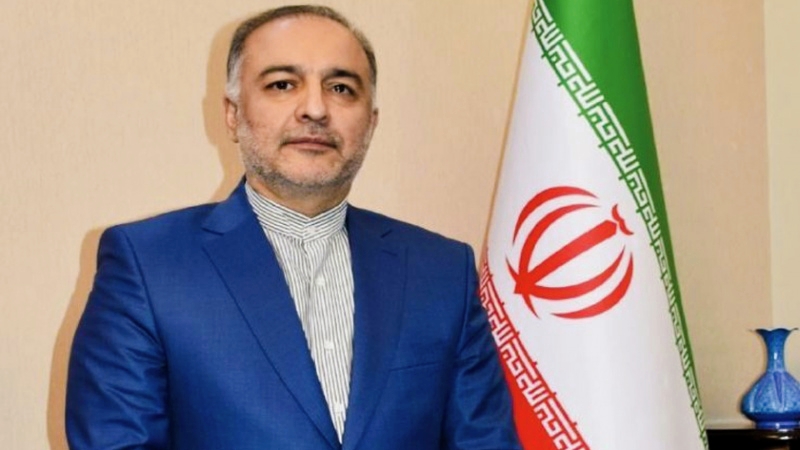In an official statement, the Iranian embassy in Baku denied allegations regarding its ambassador in Armenia, Mahdi Sabakhani, being involved in "supporting separatists in Nagorno-Karabakh" or "providing military assistance to the Armenian government."
The embassy described these claims as "pure slander" and not based on any facts.
The Iranian embassy in the Azerbaijani capital emphasized that these "allegations" contradict Iran's known policy in the Caucasus region, stressing that their repetition is part of "media campaigns aimed at confusing Iranian positions."
These statements come at a sensitive time marked by ongoing tensions between Tehran and Baku, especially after Mahdi Sabakhani's remarks in June sparked widespread controversy in Azerbaijan.
The Azerbaijani Foreign Ministry considered his statements regarding "the use of Azerbaijani territory by Israel to launch drones against Iran" as provocative and attempting to deepen the disputes between the two countries.
In a related context, the head of the National Security and Foreign Policy Committee in the Iranian parliament, Ibrahim Azizi, added that the Iranian border guards confirmed that Israel "used Azerbaijan's borders to carry out attacks against Iran," pointing out that some drones crossed from these borders.
These ongoing debates reflect a broader picture of tensions between Tehran and Baku, where Iran reaffirms its firm stance against any Israeli influence near its borders, while Azerbaijan sees some Iranian positions as exceeding diplomatic norms and constituting political messages directed against it.
* "Trump's Corridor for Peace" and Its Implications for Iranian-Azerbaijani Relations
Amid this tension, Armenian Prime Minister Nikol Pashinyan and Azerbaijani President Ilham Aliyev signed a historic agreement on August 8, 2025, under the auspices of U.S. President Donald Trump, aimed at ending a long-standing conflict in the Caucasus region.
The agreement included the establishment of the "Trump Corridor for Peace and International Prosperity" in the Zangezur region, which connects Azerbaijan to the autonomous Republic of Nakhchivan through Armenian territory.
The agreement grants the United States exclusive rights to develop this corridor for 99 years, including the construction of railways, the laying of energy pipelines, and the establishment of communication systems.
However, this project has raised significant sensitivity in Iran, as Tehran considers the corridor a threat to its geopolitical standing in the South Caucasus.
Iran fears that this agreement could lead to a direct American and Israeli presence on its northern borders, which it views as a strategic danger that may exceed the economic or logistical nature of the project.
Events are accelerating between Iran and Azerbaijan amid ongoing tensions, highlighting the impact of regional politics and major deals on the bilateral relations between the two countries.
Iranian concerns are growing regarding the increasing Western and Israeli influence in the region, raising questions about the future of geopolitical stability in the Caucasus.

